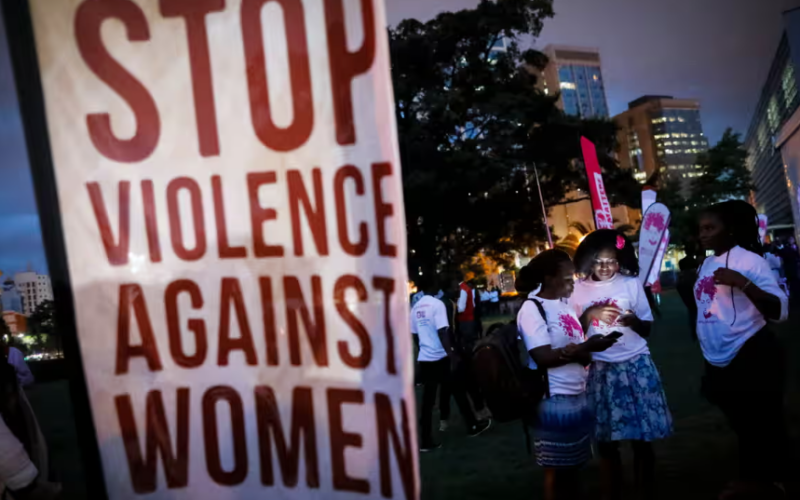Kenya is grappling with a dire situation of femicide, prompting urgent appeals from rights groups for the government to actively investigate and prosecute these brutal crimes. Two recent cases, the murders of Starlet Wahu and another woman, have ignited a nationwide outcry, highlighting the urgent need for comprehensive action to address gender-based violence. Femicide Count Kenya, an NGO documenting such incidents, recorded 152 killings last year – the highest in the past five years. However, representatives believe the actual numbers could be much higher.
Femicide Count Kenya, co-founded by Audrey Mugeni, describes the situation as a national crisis, asserting that the country is not doing enough to protect women. The organization recorded 152 femicides last year, marking the highest toll in the past five years. However, given that these numbers are based on reported cases alone, the actual figures are likely much higher. The crisis has reached alarming proportions, with at least four femicides reported in the early weeks of this year alone.
Two recent femicides have garnered significant public attention, exemplifying the severity of the issue. Starlet Wahu, a 26-year-old woman, was brutally stabbed on January 4 by a man allegedly linked to a criminal ring involved in violent extortion and rape through dating sites. Another woman, barely two weeks later, was drugged, dismembered, and her body parts discarded in plastic bags after arranging to meet a man in a rented flat. These cases underscore the urgency of addressing gender-based violence in Kenya.
While Kenya has strong laws and policies against gender-based violence, rights groups argue that implementation falls short. A national survey from 2022 revealed that over one in three women in Kenya report experiencing physical violence in their lifetime. Despite existing legal frameworks, the inadequate enforcement of these measures contributes to the escalating crisis. Advocates emphasize the need to listen to women when they report facing violence and to address the underlying factors that lead to femicides.
The recent femicides have triggered widespread social media outrage, with hashtags such as #StopKillingWomen and #EndFemicideKe trending. However, alongside the outcry, there has been victim-blaming, debates on the safety of short-term rentals where the women were killed, and suggestions that women should take greater safety precautions. Women’s groups argue that these views normalize femicide and dangerously imply that women deserve harm for not exerting sufficient effort to ensure their safety.
Femicide Count Kenya, in a statement released on Wednesday, criticized government inaction, asserting that promises to protect women’s lives ring hollow in the face of rampant femicide. The organization emphasized the urgency of enforcement and accountability, urging the government to take immediate action. The Centre for Rights, Education, and Awareness, a women’s rights NGO, joined the calls for accountability, expressing deep concern about the distressing pattern of violence. Feminist movements in Kenya are planning protests later this month to demand an end to femicides.
Femicide in Kenya has reached a critical point, demanding urgent and comprehensive action from the government. The recent high-profile cases and the alarming statistics underscore the need for effective implementation of existing laws and policies against gender-based violence. As rights groups and activists continue to raise their voices, the government faces mounting pressure to address the root causes of femicide, hold perpetrators accountable, and create a safer environment for women in Kenya.








